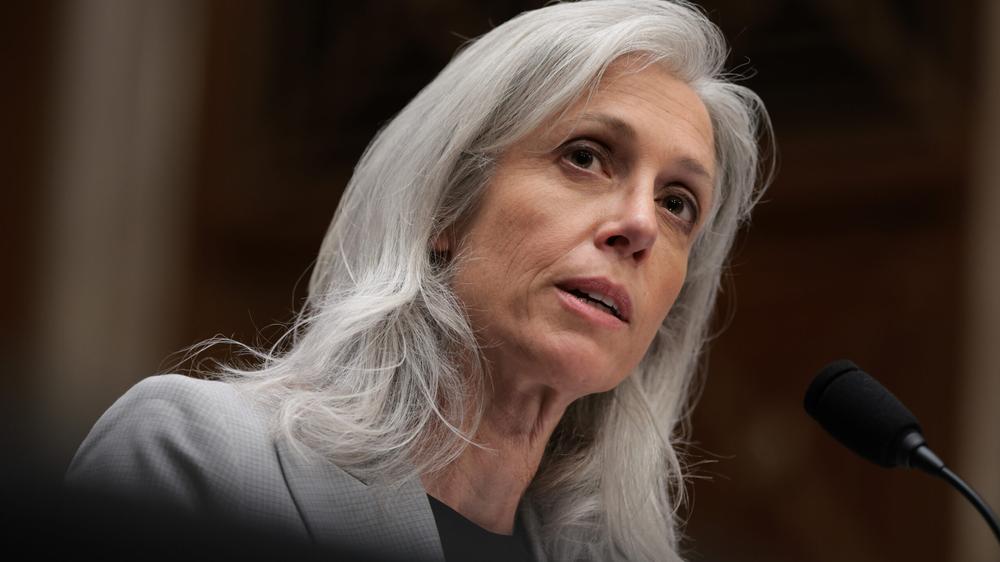As of yesterday, Susan Monarez is in and Vinay Prasad is out among top federal health officials.
In a 51–47 vote along party lines, the Senate confirmed Monarez as the director of the Centers for Disease Control and Prevention. She is the first nominee for CDC director to be required to get Senate confirmation, following a 2022 law requiring it. She is also the first person to serve in the role without a medical degree since 1953.
Monarez has a PhD in microbiology and immunology and previously served as the deputy director for the Advanced Research Projects Agency for Health (ARPA-H) under the Biden administration. Monarez quietly helmed the CDC as acting director from January to March of this year but stepped down as required when Donald Trump nominated her for the permanent role. Before that, Trump had nominated Dave Weldon, but the nomination was abandoned over concerns that his anti-vaccine views would torpedo his Senate confirmation.
In contrast, Monarez aligns with the evidence-based public health community and has support from health experts. Jennifer Nuzzo, director of the Pandemic Center at the Brown University School of Public Health, told NPR that she has known Monarez professionally for more than a decade. "She's a loyal, hardworking civil servant who leads with evidence and pragmatism and has been dedicated to improving the health of Americans for the entirety of her career," Nuzzo said of Monarez.
Similarly, Georges Benjamin, executive director of the American Public Health Association, told the outlet that Monarez "values science, is a solid researcher, and has a history of being a good manager. We're looking forward to working with her."
It remains to be seen how Monarez will balance evidence-based public health guidance with the ideologically driven choices of health secretary and fervent anti-vaccine advocate Robert F. Kennedy Jr.
“A distraction”
Meanwhile, news broke yesterday that Vinay Prasad—the Food and Drug Administration's top vaccine and gene therapy regulator, who was also the agency's chief medical and scientific office—abruptly resigned from the agency.
The official statement from the Health and Human Services Department spokesperson Andrew Nixon said that Prasad "did not want to be a distraction to the great work of the FDA in the Trump administration and has decided to return to California and spend more time with his family."
The resignation landed quickly after a series of controversial decisions on a gene therapy drug for boys, called Elevidys, made by Sarepta Therapeutics, for the treatment of Duchenne muscular dystrophy. Prasad, who has a history of demanding rigorous evidence of drug effectiveness, initially pressured Sarepta to stop shipments of the drug after two teenagers and an older man died of liver complications, according to The New York Times. But the FDA then partially reversed the decision, allowing the drug to continue to be sold to younger boys who could still walk and are considered at lower risk.
Prasad faced heavy criticism from the right, including from former Senator Rick Santorum, who has ties to Sarepta, and Laura Loomer, a right-wing influencer who reportedly holds sway with Trump. On social media, Loomer called Prasad a "leftist saboteur" and a "trojan horse in Trump’s FDA," pointing out past social media posts in which he expressed progressive opinions. An opinion piece in the Wall Street Journal over the weekend called Prasad "a Bernie Sanders Acolyte in MAHA Drag."
During his time at the FDA, Prasad was known for overruling staff scientists three times to limit access to COVID-19 vaccines, Stat News points out. On Wednesday, the outlet reported that George Tidmarsh, the FDA's top drug maker, will temporarily take over Prasad's roles.

 “This is vile”: Jet2holidays voice actress pushes back at Trump White House using meme to hype deportations
“This is vile”: Jet2holidays voice actress pushes back at Trump White House using meme to hype deportations